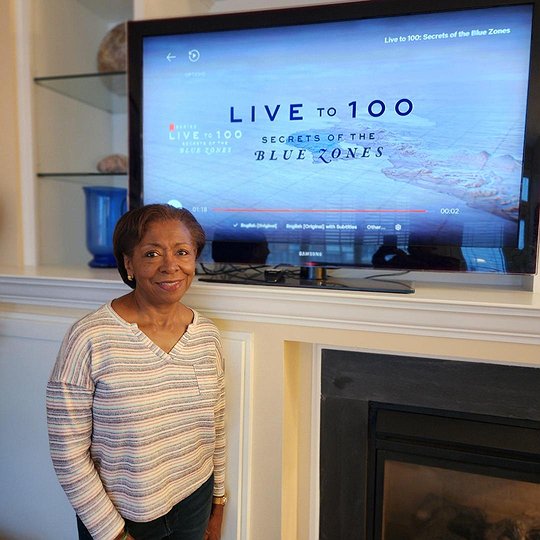Dear Caregivers: I have an enlightening resource to share with you that can benefit both you and your loved ones. It is just a matter of adapting and adopting some of the concepts of what one author-researcher calls Blue Zones.
I am thankful to a neighbor who told me about a Netflix series, Live to 100 – Secrets of the Blue Zones. The series is based on a book titled “The Blue Zones, Secrets for Living Longer, Lessons from the Healthiest Places on Earth,” by Dan Buettner. Buettner traveled to locations on various continents where his research led him to cities and towns that have the highest concentrations of centenarians, healthy centenarians. Fortunately, there is one Blue Zone in America: Loma Linda, California.
Other places he traveled to after learning of their high concentrations of centenarians included Okinawa, Japan; Sardinia, Italy; Ikaria, Greece; and Nicoya, Costa Rica.
Diets and cultural practices in the Blue Zones are important for us in America to be aware of.
Researchers at U.S. Health Care from a Global Perspective concluded that “People in the United States experience the worst health outcomes overall of any high-income nation.” And that “Americans are more likely to die younger and from avoidable causes, than residents of peer countries.”
Learning from the Blue Zones is worthwhile for us. For example, Okinawa has the longest living people in the world. Sardinia, Italy, had no nursing homes, and it boasts the highest concentration of male centenarians in the world. Ikaria, Greece, had half the rate of cardiovascular disease. And Ikaria had no cases of dementia at the time of Buettner’s study.
The concepts — some new, others familiar — depict both lifestyle and diet practices, which include:
Moving naturally: They use their hands, working with animals, tools or gardening. And they are in constant motion, often simply walking instead of driving. And they walk up and down steep hills and stairs outdoors or in their homes.
Having a meaningful outlook: The centenarians, other elderly and younger people join together to unwind. Some practice a faith, regularly joining with others and they have a defined purpose for their life.
Eating wisely: Many believe in a mainly plant-based diet. They enjoy natural herbal teas. When one interviewer was asked the best tea, the elderly woman responded, “wine.” They eat their meals in moderation, meaning they stop eating before they are fully satiated.
Intentionally connecting with others: People in the Blue Zone communities commit to strong family relationships and create or embrace a village or tribe of people to socialize with and provide mutual help.
I could go on and on, but I won’t. And of course, I am not suggesting we all pack up and move. But I do hope I have piqued your interest enough for you to check out the book or the Netflix series. If we are willing to consider some of these practices, again some new and others similar or familiar, this could help us to enhance health and quality of life for our loved ones and for ourselves. We are all ageing every day. Let’s do it well.
